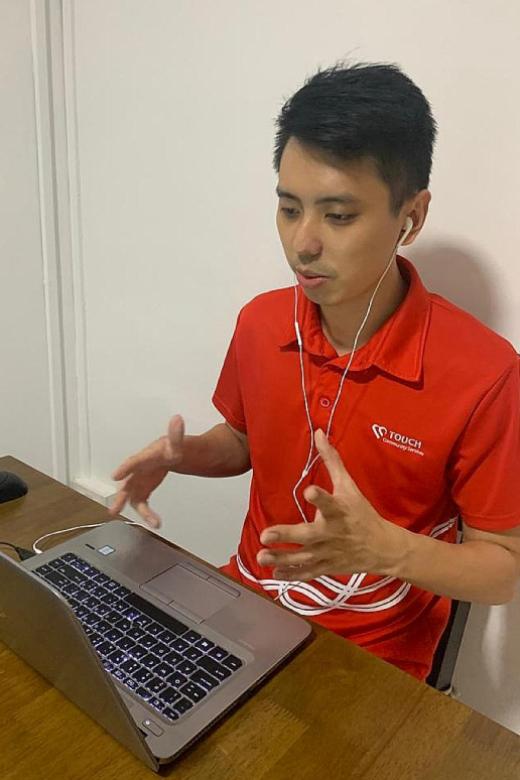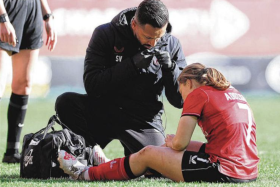Allied health services, such as therapy, reclassified as essential
Face-to-face consultation has always been the traditional way to provide therapy, said Ms Antoinette Patterson, co-founder of mental wellness platform Safe Space.
"On a video call, we can see only facial expressions and tonality but can't read other cues like foot tapping that help us provide a complete assessment," she said.
One client wanted to seek refuge in the Safe Space office to escape his family problems, but he had to be turned away as the circuit breaker measures prohibited the counsellors from meeting clients in person.
Distressed clients such as domestic abuse cases need to meet face to face urgently, Ms Patterson told The New Paper.
For these reasons, she was glad face-to-face consultations may resume as the Ministry of Health (MOH) recategorised allied health services as an essential service yesterday.
This applies to rehab, therapy and allied health services such as dietetics, social work and psychology outside of public healthcare institutions.
Sessions are to be on a one-to-one basis, and to prioritise face-to-face consultations for patients whose condition may significantly or rapidly deteriorate and thus potentially threatening their health and well-being, MOH said in a statement.
Mental health service providers TNP contacted expressed relief at the announcement.
Silver Ribbon executive director Porsche Poh said many young people in need of counselling responded positively to online services when offices were closed since April 6, and the news would benefit seniors.
Ms Poh said: "Some of the elderly are not IT-savvy and prefer face-to-face counselling for emotional support."
Senior counsellor at Touch Integrated Family Group Shawn Soh said: "This is a good step forward to help those who are struggling. Before this, there were limited resources for affected individuals."
Covid-19 can create uncertainties and changes in lifestyles, contributing to anxieties and emotional problems, Mr Soh added.
About half of the calls Touch has received were related to mental health issues - a 10 per cent increase since January.
He said: "Having a face-to-face session at our premises provides a safe environment for clients to share their problems."
Safe Space said it has seen a 55 per cent increase in users of the mobile app offering online counselling since February.
Ms Patterson said it has responded to 1,056 clients using the mobile counselling platform, adding: "With the advancements in technology, video calls will close the gap, and what we see as a supplement for face-to-face consultations could eventually become a strong alternative for both users and practitioners that provides a complete assessment."
Nominated Member of Parliament Anthea Ong said she felt "deep relief" as people with struggles triggered during the circuit breaker are now able to be supported in person.
She told TNP: "The emotional presence of a counsellor or therapist will make a significant difference in their care and recovery.
"Without access to these services, we would be worsening the mental health crisis."
FOR EMOTIONAL SUPPORT
National Care Hotline: 6202-6868
Silver Ribbon: 6385-3714
TouchLine: 1800-377-2252
Or download the Safe Space app
Get The New Paper on your phone with the free TNP app. Download from the Apple App Store or Google Play Store now


